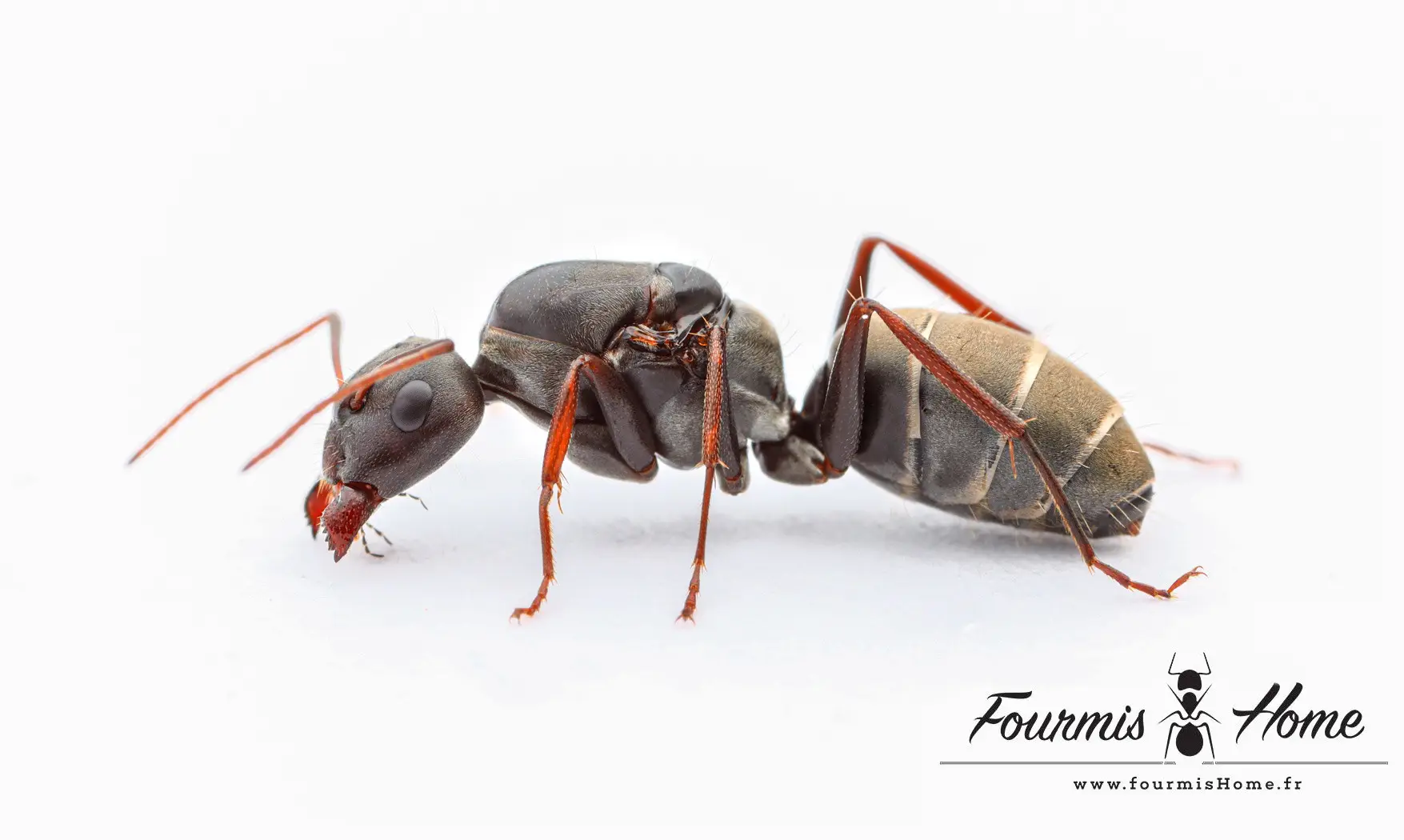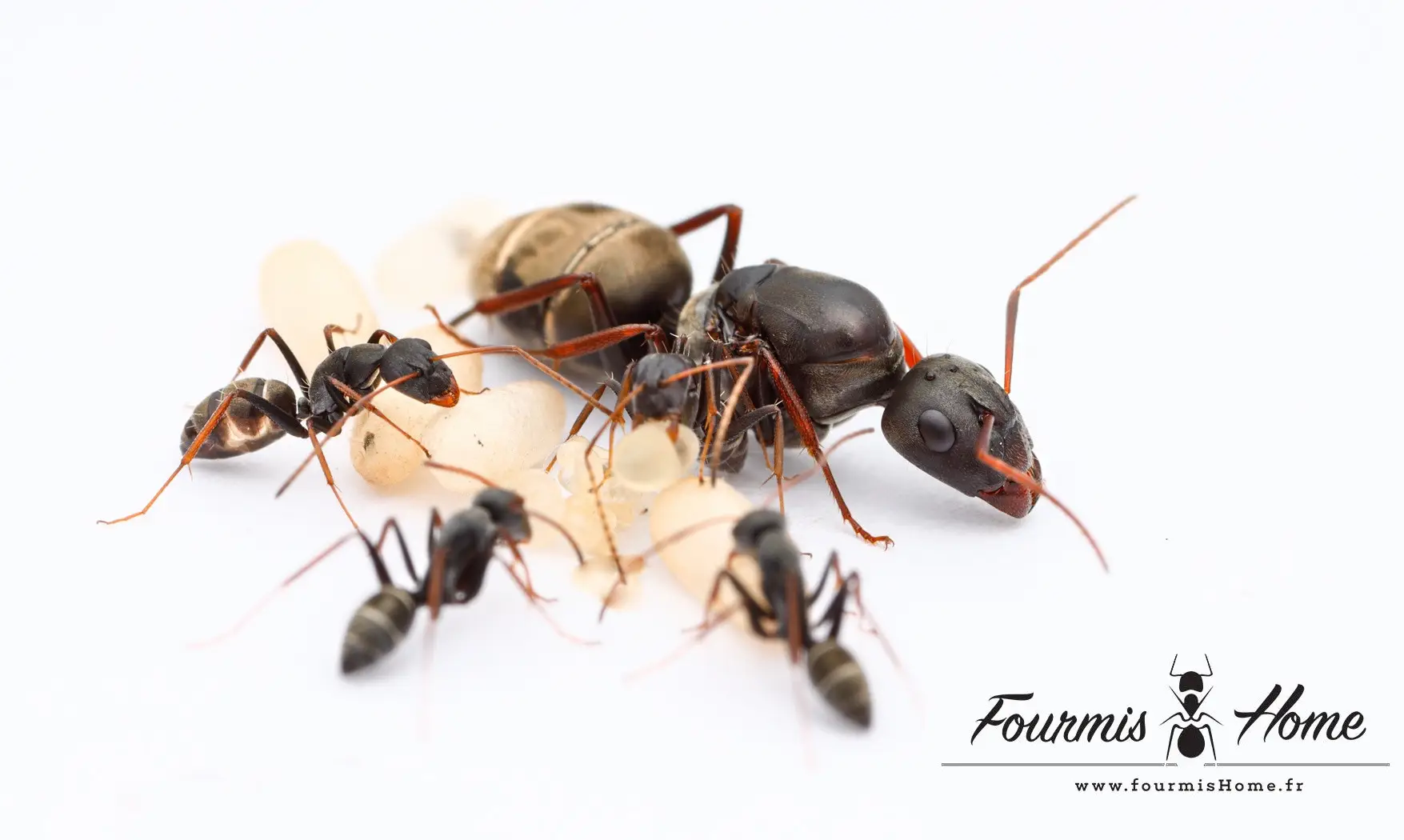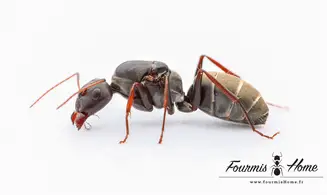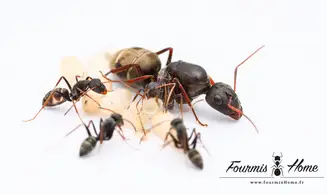



Camponotus cinctellus
Reference : CFOUR-020
49.90€
Available
Latin name: Camponotus cinctellus
Taxonomy: Subfamily: Formicinae, Tribe: Camponotini
Breeding level: Beginner, just provide a good temperature
Geographical distribution: Africa, Kenya, Tanzania
Habitat: Prefers the steppe and dry forest.
Colony form: Monogyne
Queen: Size: 16 - 17mm Color: Matt black head and thorax, Gastre with strong hairiness with golden reflections
Workers: Size: 6 - 10mm Color: Matt black head and thorax, Gastre with strong hairiness with golden reflections
Major: Size 13 - 15mm Color: Matt black head and thorax, Gastre with strong hairiness with golden reflections
Male: Size: 11mm Color: Matt black
Food: Honeydew and insects: such as flies, mealworms, mosquitoes and small locusts; also fruit
Humidity: Hunting area: 30 - 50% Nest: 50 - 60%
Temperature: Hunting ground: 18 - 30 ° C Nest: 24-28 ° C
Hibernation: No, but a winter break from November to March is recommended at room temperature
Type of nest: All types of nests will suit them, tube foundation and then dry nest with a drinker in the hunting area.
Description: Camponotus cinctellus are among the largest and most beautiful ants in Africa. They are very aggressive and defensive. but only attacks when the nest is disturbed with very powerful mandibles.
Development: Swarming from March to July depending on the country of origin
Foundation: Takes place in a claustral way (without food) Development: 45 days from egg to worker (depending on temperature)
Size of the colony: 10 000 individuals, the queen can reach the age of 20 years.
Taxonomy: Subfamily: Formicinae, Tribe: Camponotini
Breeding level: Beginner, just provide a good temperature
Geographical distribution: Africa, Kenya, Tanzania
Habitat: Prefers the steppe and dry forest.
Colony form: Monogyne
Queen: Size: 16 - 17mm Color: Matt black head and thorax, Gastre with strong hairiness with golden reflections
Workers: Size: 6 - 10mm Color: Matt black head and thorax, Gastre with strong hairiness with golden reflections
Major: Size 13 - 15mm Color: Matt black head and thorax, Gastre with strong hairiness with golden reflections
Male: Size: 11mm Color: Matt black
Food: Honeydew and insects: such as flies, mealworms, mosquitoes and small locusts; also fruit
Humidity: Hunting area: 30 - 50% Nest: 50 - 60%
Temperature: Hunting ground: 18 - 30 ° C Nest: 24-28 ° C
Hibernation: No, but a winter break from November to March is recommended at room temperature
Type of nest: All types of nests will suit them, tube foundation and then dry nest with a drinker in the hunting area.
Description: Camponotus cinctellus are among the largest and most beautiful ants in Africa. They are very aggressive and defensive. but only attacks when the nest is disturbed with very powerful mandibles.
Development: Swarming from March to July depending on the country of origin
Foundation: Takes place in a claustral way (without food) Development: 45 days from egg to worker (depending on temperature)
Size of the colony: 10 000 individuals, the queen can reach the age of 20 years.

